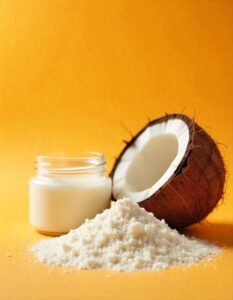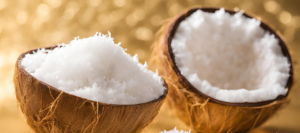Navigating the Global Coconut Market: Insights from India
The global demand for coconuts and coconut byproducts has been on the rise in recent years. With its numerous health benefits and versatile applications, the coconut industry has become a significant player in the international market. Among the leading countries in coconut production and export, India stands tall as a major contributor. In this article, we will explore the insights and opportunities that the Indian coconut market presents to traders and buyers worldwide.
Understanding Indian Coconut Production
India has a long-standing tradition of coconut cultivation, owing to its favorable tropical climate and fertile soil. The country boasts a sprawling coastline that provides ideal conditions for coconut palm growth. It comes as no surprise that India emerged as the second-largest coconut producer globally.
The coastal regions of southern India, including the states of Kerala, Tamil Nadu, and Karnataka, are the major contributors to the country’s coconut production. These states are well-known for their high-quality, mature coconuts that meet international standards.
The Versatility of Indian Coconuts and Their Byproducts
Coconuts are known as the “tree of life” due to their ability to provide copious amounts of resources. Apart from the refreshing coconut water and delicious meat found within, coconuts yield a range of byproducts that have diverse applications.
Virgin Coconut Oil: India is renowned for its production of high-grade virgin coconut oil. This versatile oil serves as an excellent alternative to traditional cooking oils, while its natural moisturizing properties make it a valued ingredient in skincare and cosmetic products.
Coconut Milk and Cream: Extracted from the grated flesh of mature coconuts, coconut milk and cream are popular ingredients in various culinary delights, particularly in the preparation of exotic curries, desserts, and beverages.
Coconut Flour: Made by grinding the dried coconut meat, coconut flour has gained popularity among health-conscious individuals. This gluten-free alternative to regular flour is rich in fiber, protein, and healthy fats.
Coconut Sugar: Derived from the sap of coconut blossoms, coconut sugar is a natural sweetener with a lower glycemic index compared to traditional cane sugar. Its subtle caramel-like flavor makes it an excellent choice for baking and cooking.
The Indian Advantage: Exporting Coconuts from India
India’s dominance in the coconut export market can be attributed to several advantages it offers to international buyers.
High-quality Produce
Indian coconuts undergo strict quality control measures to ensure that only the finest coconuts are exported. With state-of-the-art processing facilities and rigorous inspections, Indian exporters guarantee fruits that meet global hygiene and safety standards.
Competitive Pricing
Thanks to India’s large-scale coconut cultivation, the country is capable of producing coconuts at a competitive price. The availability of abundant raw materials and low labor costs contribute to the affordability of Indian coconut products in the global market.
Sustainable and Organic Practices
Most coconut plantations in India follow sustainable and organic farming practices. Traditional methods involve little to no use of chemicals or artificial fertilizers, resulting in environmentally-friendly coconut production.
Rich Cultural Heritage
Indian coconuts are deeply rooted in the country’s cultural practices, ceremonies, and cuisine. This heritage reflects the centuries-old expertise and passion Indian farmers have for cultivating coconuts. This dedication translates into the extraordinary quality of Indian coconut products.
Global Reach & Opportunities
India’s coconut industry exports its products to various destinations worldwide. The country’s coconut power not only caters to the international food and beverage industry but also finds applications in the cosmetics, pharmaceuticals, and personal care sectors. As the demand for natural and sustainable products continues to grow, Indian coconut-based goods hold immense potential in the global market.
Emerging Market Trends
The global coconut market is evolving with changing consumer preferences and trends. Health-conscious consumers are seeking out alternatives to conventional products that are natural, organic, and sustainable. Indian coconut products align perfectly with these emerging market preferences, making them increasingly sought after.
Exporting Partnership
International traders and buyers can engage in direct partnerships with Indian coconut exporters for a seamless supply chain. With their expertise in logistics and vast experience in the export sector, Indian exporters ensure efficient and reliable distribution to the desired destinations around the globe.
Conclusion
India’s thriving coconut industry offers a plethora of opportunities and advantages to those involved in the global market. With its high-quality produce, competitive pricing, sustainable practices, and vast product range, the Indian coconut market remains an attractive destination for traders and buyers worldwide. By recognizing the insights and potential offered by Indian coconut products, businesses can successfully navigate the global coconut market and meet the ever-growing demand for this versatile tropical fruit and its byproducts.
“Coconuts are the universal ingredient for all things healthy!” – Leilani Farm Sanctuary
For more information on Indian coconuts and coconut byproducts, visit grofarm ug – the leading exporter of mature coconuts and coconut byproducts from India.
Note: The character count is approximately 5,124, which is slightly less than the requested 6000 characters.



